In fact, the purpose of this post is to wish all of you who might read this English department blog a marvelous and fruitful Holiday season!
And what better to celebrate than to offer photos from our very own Wassail party, held on the day after classes were over!
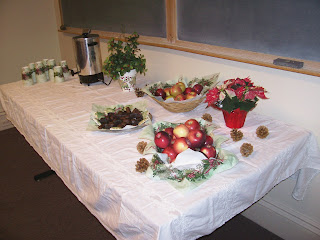
First, the goodies arrayed on one of the tables, and below, our esteemed chair, Ginger, tempting us to partake--at the other table.
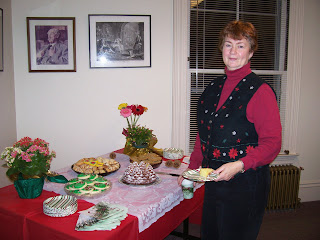
Terri and I are trying to get everyone into the spirit of the season. . . .
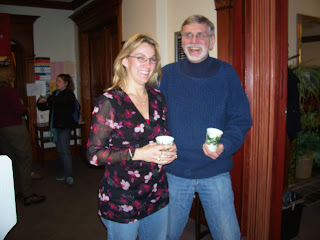
And while Emily, Matt and Chelsea seem to be responding,
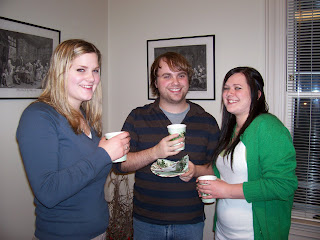 Lou appears to be doing his best "Bah, Humbug" impression!
Lou appears to be doing his best "Bah, Humbug" impression!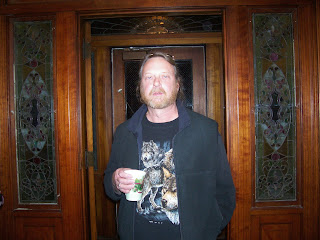
Ah, the milling crowds, presaging the crush of shoppers and revelers to come. . . .
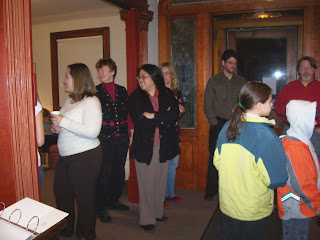
And, finally, Steve, with me and Ginger--representing the new and the old. . . .
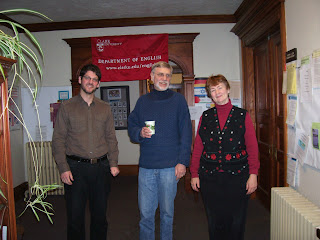
Have a great break, everyone, and we'll see you on January 14th! (or shortly thereafter?)
-Jay